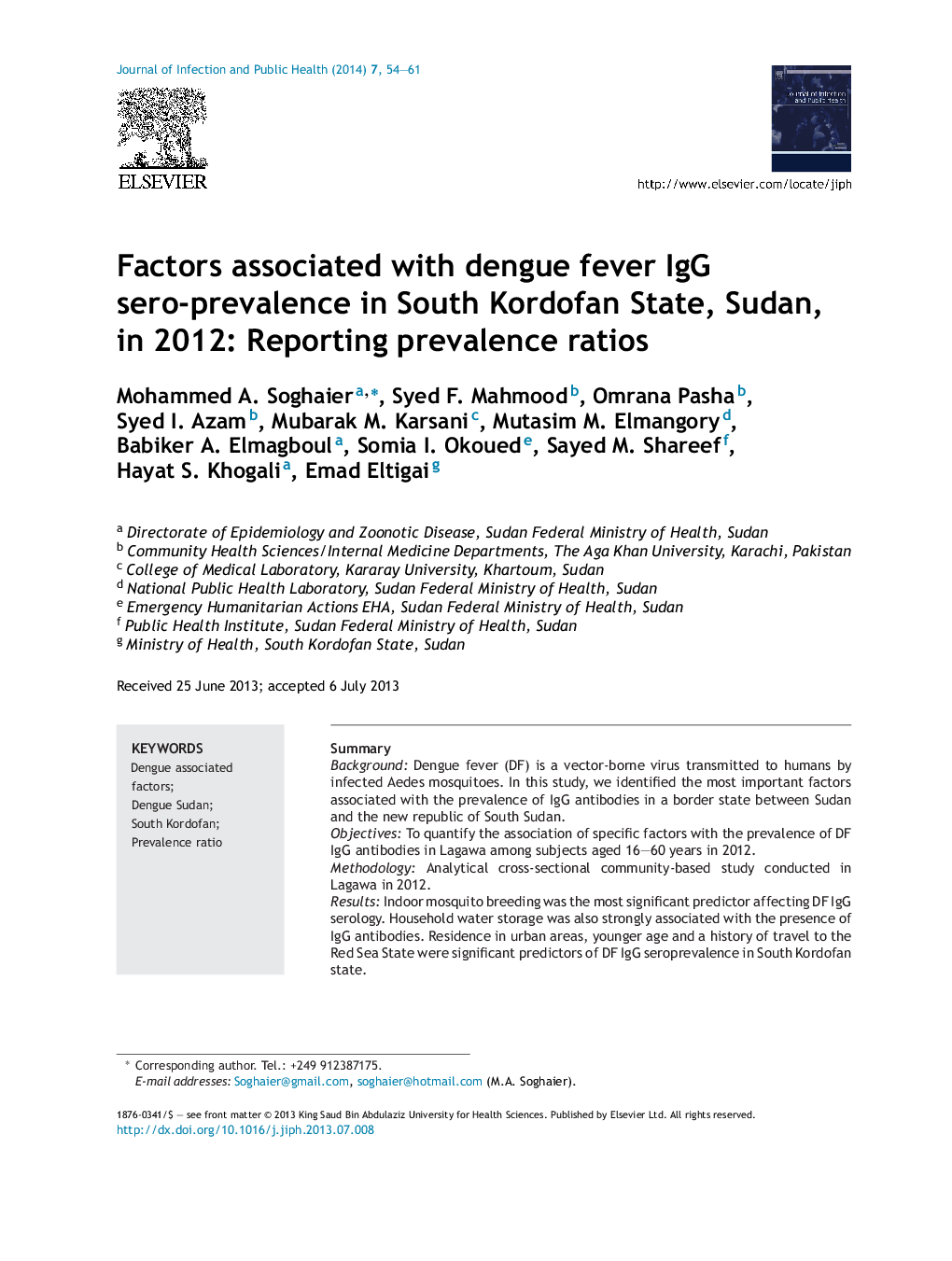| Article ID | Journal | Published Year | Pages | File Type |
|---|---|---|---|---|
| 3406133 | Journal of Infection and Public Health | 2014 | 8 Pages |
SummaryBackgroundDengue fever (DF) is a vector-borne virus transmitted to humans by infected Aedes mosquitoes. In this study, we identified the most important factors associated with the prevalence of IgG antibodies in a border state between Sudan and the new republic of South Sudan.ObjectivesTo quantify the association of specific factors with the prevalence of DF IgG antibodies in Lagawa among subjects aged 16–60 years in 2012.MethodologyAnalytical cross-sectional community-based study conducted in Lagawa in 2012.ResultsIndoor mosquito breeding was the most significant predictor affecting DF IgG serology. Household water storage was also strongly associated with the presence of IgG antibodies. Residence in urban areas, younger age and a history of travel to the Red Sea State were significant predictors of DF IgG seroprevalence in South Kordofan state.ConclusionIndoor (household) behaviors associated with DF infection should be modified to mitigate the infection risk in the study area. Awareness should be raised regarding DF in Lagawa to ensure community participation in all control measures, and the surveillance system at the border between Sudan and the republic of South Sudan should be strengthened.
